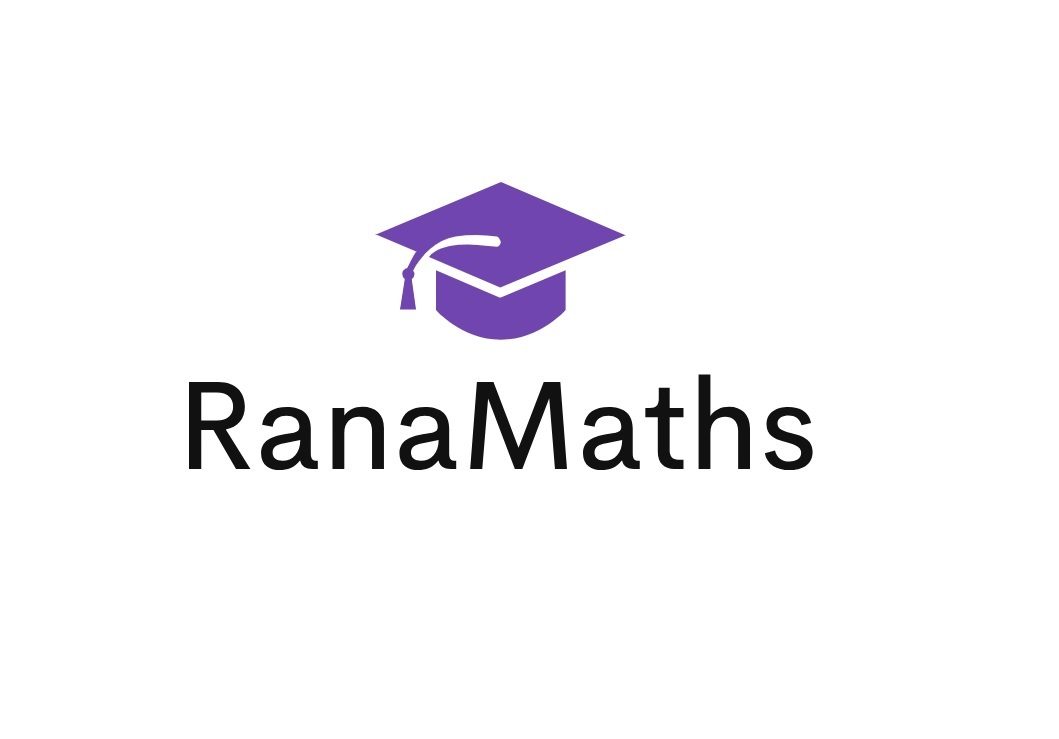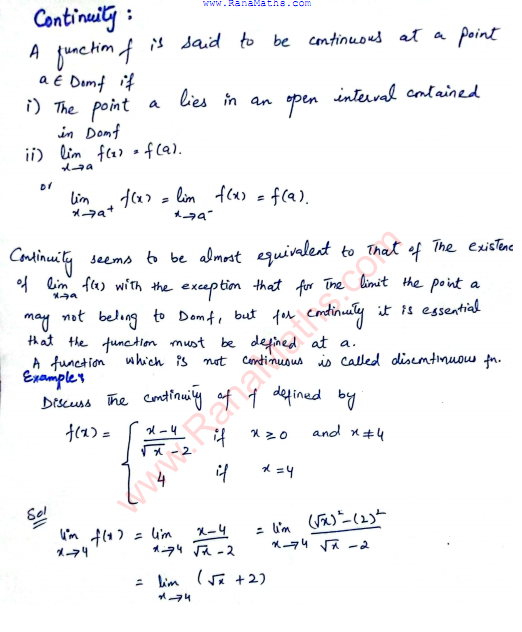Calculus and Analytical Geometry Lecture No. 4
In these notes, Calculus 1 at the undergraduate level is well discussed. These are hand-written written notes. If you come across any errors, kindly provide your feedback in the comments section below.
We would like to extend our heartfelt gratitude to Ma’am Nabila Riaz for providing these useful notes. Ms. Nabila Riaz is an exceptionally skilled and dynamic lecturer at the Federal Urdu University in Islamabad.
We invite you to continue exploring our website at www.RanaMaths.com
- Calculus:
- Differential Calculus: Focuses on the concept of a derivative, which measures how a function changes as its input changes.
- Integral Calculus: Concerned with the concept of integration, which is essentially finding the accumulation of quantities.
- Analytical Geometry:
- Coordinate Geometry: Also known as Cartesian geometry, it involves representing geometric figures using coordinate systems.This allows for the algebraic representation of geometric shapes and the application of algebraic methods to solve geometric problems.
- Vectors and Vector Geometry: Vectors have both direction and magnitude. Analytical geometry uses vectors to study geometric objects and relationships. Vector operations, such as addition, subtraction, and dot products, are essential tools.
Continuity:
In mathematics, continuity is a fundamental concept that describes the smooth and unbroken nature of a function over its domain.
- f(c) is defined
- The limit x approaches c of f(x) exists. The limx→cf(x) must exist.
- The limit of f(x) as x approaches c is equal to f(c): limx→cf(x)=f(c)
Extreme Value Theorem
The Extreme Value Theorem, a fundamental mathematical principle, asserts that a real-valued function, when continuous on a closed and bounded interval, will inevitably achieve both its maximum and minimum values at some point within that interval. This theorem holds significance across various disciplines, such as calculus and optimization, offering valuable insights into the behavior of functions within specific intervals.
Intermediate Value Theorem
This theorem is particularly useful for understanding the behavior of continuous functions and is a fundamental tool in calculus.

